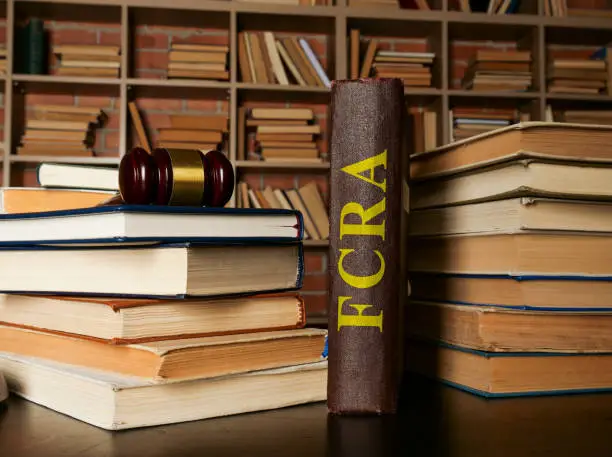The Fair Credit Reporting Act (FCRA) is a critical piece of legislation designed to regulate the collection, dissemination, and use of consumer credit information. Enacted in 1970, the FCRA aims to protect consumers from unfair credit practices and ensure the accuracy and privacy of their credit reports.
This comprehensive guide will delve into the key aspects of the FCRA, including its provisions, consumer rights, and practical implications for both individuals and businesses.
What is the Fair Credit Reporting Act?
The Fair Credit Reporting Act (FCRA) is a federal law that governs how credit reporting agencies collect, use, and share consumer credit information.
The primary objectives of the FCRA are to promote the accuracy, fairness, and privacy of consumer credit information, and to establish a framework for resolving disputes related to credit reporting.

Key Provisions of the FCRA
1. Accuracy and Fairness of Credit Information
The FCRA mandates that credit reporting agencies (CRAs) maintain accurate and up-to-date information on consumers. It requires that all information reported must be complete and fair, and that CRAs must investigate and correct any inaccuracies in credit reports within a reasonable time frame.
2. Consumer Access to Credit Reports
Under the FCRA, consumers have the right to access their credit reports and review the information contained within them. This allows individuals to verify the accuracy of their credit data and identify any discrepancies or fraudulent activity.
3. Right to Dispute Inaccurate Information
Consumers have the right to dispute any inaccurate or incomplete information on their credit reports. When a dispute is filed, the credit reporting agency must investigate the claim and correct or remove any erroneous information if the dispute is valid.
4. Restrictions on Access to Credit Reports
The FCRA limits who can access a consumer’s credit report and under what circumstances. Generally, access is restricted to entities with a legitimate need, such as lenders, employers, and insurers, and only for specific purposes, such as evaluating creditworthiness or employment suitability.
5. Notification of Negative Information
If a consumer’s credit report results in an adverse action, such as a denied credit application, the FCRA requires that the consumer be notified of the action and provided with information about the credit report that influenced the decision. This helps consumers understand how their credit report impacted the decision and allows them to address any issues.
6. Credit Reporting Agency Responsibilities
The FCRA outlines the responsibilities of credit reporting agencies, including the need to implement procedures for maintaining accurate records, investigating disputes, and ensuring the security of consumer information.

Consumer Rights Under the FCRA
The FCRA grants several rights to consumers to protect them from inaccurate or unfair credit practices:
1. Right to Access Your Credit Report
You have the right to request and review your credit report from each of the major credit reporting agencies—Equifax, Experian, and TransUnion—once a year for free. This helps you monitor your credit history and identify any errors or signs of identity theft.
2. Right to Dispute Errors
If you find inaccuracies or incomplete information on your credit report, you have the right to dispute it with the credit reporting agency. The agency must investigate your dispute and correct or remove any erroneous information within 30 days.
3. Right to Know When Your Credit Report Is Used
When your credit report is used to make a decision that adversely affects you, such as denying a credit application, the FCRA requires that you be informed of this action. You should also receive information about the credit report that was used in the decision-making process.
4. Right to Privacy
The FCRA limits access to your credit report to authorized parties with a legitimate purpose. Unauthorized access or disclosure of your credit information is prohibited and can result in legal consequences for the party responsible.
5. Right to Place Fraud Alerts or Credit Freezes
If you suspect identity theft or fraud, you have the right to place a fraud alert or credit freeze on your credit report. A fraud alert notifies creditors to verify your identity before issuing credit, while a credit freeze restricts access to your credit report, making it more difficult for new accounts to be opened in your name.
The FCRA and Credit Reporting Agencies
Credit reporting agencies (CRAs) play a central role in the FCRA, as they are responsible for collecting, maintaining, and distributing credit information. The major CRAs are Equifax, Experian, and TransUnion. Here’s how the FCRA impacts their operations:
1. Data Collection and Maintenance
CRAs must collect and maintain accurate and up-to-date information on consumers. This includes credit accounts, payment histories, and public records such as bankruptcies and judgments. They are required to implement procedures to ensure the accuracy and completeness of the data they report.

2. Investigation of Disputes
When a consumer disputes an item on their credit report, the CRA must investigate the claim. This involves contacting the creditor or entity that provided the disputed information and verifying its accuracy. If the information is found to be incorrect, the CRA must update or remove it from the credit report.
3. Reporting Requirements
CRAs must provide accurate and complete information to authorized users, such as lenders and insurers. They must also ensure that consumers are notified of adverse actions taken based on their credit reports, as required by the FCRA.
4. Security and Privacy
CRAs are responsible for implementing security measures to protect consumer data from unauthorized access or disclosure. They must also adhere to privacy regulations and ensure that only authorized parties can access credit reports.
The Role of Creditors and Lenders
Creditors and lenders also play a significant role in the FCRA, as they are often the entities that request and use credit reports to make lending decisions. Here’s how the FCRA affects them:
1. Permissible Purpose
Creditors and lenders must have a permissible purpose to access a consumer’s credit report. This typically includes evaluating a credit application, assessing creditworthiness, or reviewing an existing account. They cannot access credit reports for unauthorized purposes.
2. Adverse Action Notifications
If a creditor or lender takes an adverse action based on a consumer’s credit report, such as denying a credit application or increasing interest rates, they must notify the consumer. The notification must include the name of the credit reporting agency that provided the report and information on how to obtain a free copy of the report.
3. Accuracy and Reporting
Creditors and lenders must report accurate information to credit reporting agencies. They are also required to update or correct any inaccuracies in the information they provide, ensuring that consumers’ credit reports reflect their true credit history.
Common Issues and Challenges with the FCRA
1. Inaccurate Information
One of the most common issues with credit reports is inaccurate or outdated information. This can result from clerical errors, incorrect data provided by creditors, or identity theft. The FCRA provides a framework for disputing and correcting inaccuracies, but consumers may face challenges in resolving disputes.
2. Identity Theft
Identity theft is a significant concern related to credit reporting. Fraudulent accounts and transactions can appear on a credit report, negatively impacting a consumer’s credit score and financial health. The FCRA allows consumers to place fraud alerts or credit freezes to protect against identity theft.
3. Credit Reporting Errors
Credit reporting errors can occur when credit reporting agencies fail to update or correct information promptly. These errors can affect a consumer’s credit score and lead to difficulties in obtaining credit. Consumers need to be proactive in monitoring their credit reports and disputing errors.

4. Legal and Regulatory Challenges
The FCRA is subject to legal and regulatory changes, which can impact its interpretation and enforcement. Consumers and businesses must stay informed about any updates to the law and how they may affect credit reporting practices.
How Our Team Came Up with These Ideas
Our team of credit experts and financial advisors developed these insights into the Fair Credit Reporting Act through extensive research and hands-on experience with credit reporting issues. Here’s how we approached the task:
We started by brainstorming key aspects of the FCRA and its impact on consumers and businesses. Our research included reviewing legal texts, industry reports, and case studies related to credit reporting and consumer rights.
Our team members shared their experiences working with clients facing credit reporting issues, such as inaccuracies and disputes. These real-world insights provided valuable context for understanding how the FCRA operates in practice.
We consulted with legal and financial experts to ensure our guide was accurate and comprehensive. Their expertise helped us refine our understanding of the FCRA and its implications for consumers and businesses.
Combining our research, real-world experiences, and expert consultations, we crafted this comprehensive guide to the FCRA. Our goal is to provide practical information and actionable advice to help consumers and businesses navigate the complexities of credit reporting.
Conclusion
The Fair Credit Reporting Act is a vital law that protects consumers’ rights and ensures the accuracy and fairness of credit reporting. By understanding the key provisions of the FCRA, consumer rights, and the roles of credit reporting agencies and creditors, you can better manage your credit and resolve any issues that arise.
Whether you’re dealing with inaccuracies, identity theft, or other credit reporting challenges, knowing your rights and the resources available to you can make a significant difference in your financial well-being.


Leave a Reply